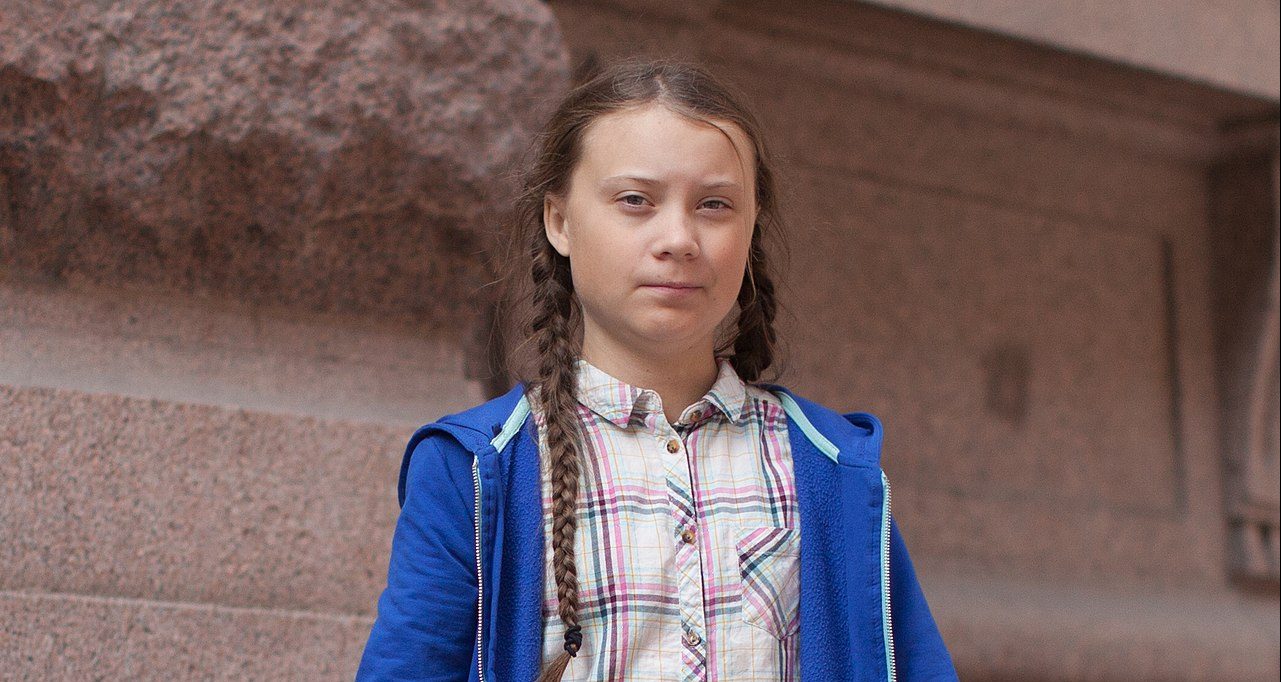Photo courtesy of Wikimedia Commons.
AUDREY DAVENPORT | OPINION COLUMNIST | amdavenp@butler.edu
If you have social media, you’ve probably seen, heard or posted about Greta Thunberg. I can wait while you go and look her up, but the climate and our planet cannot.
Sustainability is a buzzword, or has at least become one, along with others like climate change, global warming and Amazon fires. And although they might be overused and we’re becoming desensitized to them, Thunberg has given a new sense of urgency to the issue in a big way.
But why isn’t everyone on board, and what are we supposed to do now?
Acknowledging that there are barriers to becoming a sustainable species is important. No one said that fixing the natural state of the planet would be easy — it is going to be hard and take more effort than our lawmakers care to put into it. I’m just being blunt.
I would say that I live a sustainable life. I recycle, I avoid single-use plastics and generally try to reduce my waste. But not everyone on the planet has the means to live their lives as sustainably as they might hope to. The pursuit of sustainability isn’t always possible when financial burdens come into play, such as not being able to afford an electric car, not being able to pay extra for a recycling service, or not being able to boycott certain companies if they are your only option. In these situations it is up to the leadership in our country to make nationwide sustainability a priority.
One of the biggest obstacles in living sustainably is also the question of personal responsibility and obligation.
Jackson Borman, a senior strategic communication major, thinks that we should do as much as we can, but that there are other barriers to global change.
“There is a part of me that says I can determine what I eat and I can determine if I recycle,” Borman said. “But then there are also are large percentage of emissions that come from big corporations that we can’t do anything about as individuals.”
We are borrowing this planet and its resources; we are merely guests and must respect our home and what it gives us. The Earth can live without us, but we couldn’t say the same. You don’t walk into someone’s home and just steal their snacks. You don’t own them. And who’s to say that we really own any part of this planet?
Claire Mastrandrea, a sophomore actuarial science and statistics double major, thinks that our world is becoming more connected day after day, leaving the idea of ownership very open for discussion.
“I think that because our world is becoming so small because of social media, we truly are all very connected, so no one can really claim anything as theirs,” Mastrandrea said. “I think that it is shared by the Earth.”
One of the central ideas in Thunberg’s movement has been that future generations realize the power that they have. We have a responsibility to hold our leaders accountable. No one can be a perfect environmentalist, but we can all do our best to become advocates. This will be our planet and our voices are finally starting to be heard. We are growing up and we are voting, and our leaders will have to listen.
All in all, there are undoubtedly difficulties when it comes to living sustainably and no one can truly be a perfect environmentalist. But, we do have the power to elect leaders who will advocate for change as well as doing our part in our day to day lives.
I encourage you to challenge yourself to see what you’re capable of and how much influence you truly have. We all need to do what we can — voting included — to help our planet. Each and every one of us across all ages, whether we want to or not, has a part to play in this fight. Make your opinion known and heard, because without action and without determination, no change will be made.



